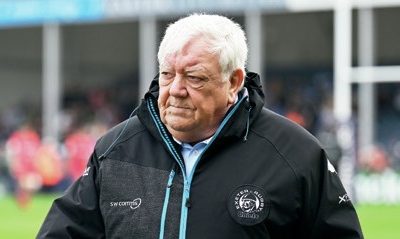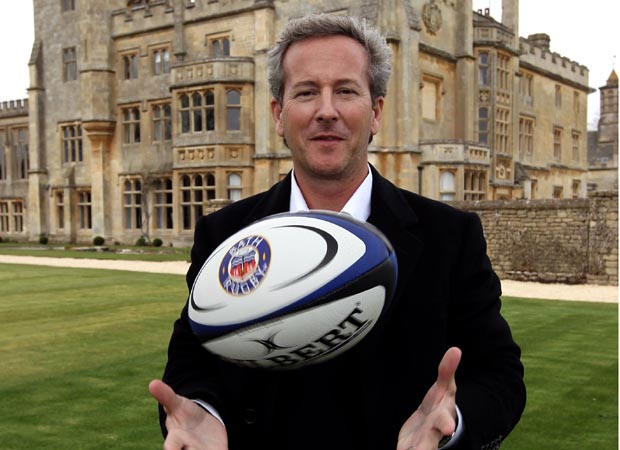 While I have sympathy for Premiership Rugby‘s bid to secure a more meritocratic Heineken Cup, the initiative by PRL, the administrative arm of the elite English league, to secure more control over referees is as welcome as a poke in the eye.
While I have sympathy for Premiership Rugby‘s bid to secure a more meritocratic Heineken Cup, the initiative by PRL, the administrative arm of the elite English league, to secure more control over referees is as welcome as a poke in the eye.
Premiership Rugby’s attempts to exercise greater influence over referees was reported in our front page lead last week. It revealed that Ed Morrison’s decision to quit as the RFU‘s head of elite refereeing was as a result of the governing body’s intention to create a new order, which effectively undermined his position.
This involved the RFU and PRL creating a jointly funded watchdog role which increases the scrutiny on referees and their assistants.
I have no problem with an international drive for higher refereeing standards because there is plenty of evidence to suggest that overall they have not kept pace with the playing side of the game in the professional era. However, in England, and elsewhere, the best model is for those standards to be promoted by a body which is essentially independent of the elite league – a role filled now by the RFU.
Instead, we have an erosion of that principle, with the RFU mistakenly giving way to PRL pressure to have a greater influence on the appointment of referees, and on the interpretation of the Laws of the game.
It is wholly inappropriate to have Premiership club owners, chief executives, directors of rugby, coaches, or players – people who have a vested interest in every fixture that takes place in the competition – either selecting referees, or instructing them on the interpretation of the Laws.
 That is why the new watchdog role is so contentious, and why Morrison took such umbrage. It is also surprising that the man earmarked for the joint PRL-RFU post, Geraint Ashton-Jones – a former Premiership referee, technical adviser to Harlequins, and former Royal Navy representative on the RFU Council – has not seen the pitfalls.
That is why the new watchdog role is so contentious, and why Morrison took such umbrage. It is also surprising that the man earmarked for the joint PRL-RFU post, Geraint Ashton-Jones – a former Premiership referee, technical adviser to Harlequins, and former Royal Navy representative on the RFU Council – has not seen the pitfalls.
Whereas Morrison was independent of Premiership Rugby there is obviously the potential for Ashton-Jones to become the instrument of influential lobbies within the English club game, of which the coaches have become the most vociferous.
The problem with having coaches exerting undue influence on referee selection, or Law application, is that they rarely speak with a unified voice. It is also glaringly obvious that they have a vested interest in promoting those aspects of the game that best suit the strengths of the teams they coach.
If anyone needed a quick reminder of their diversity of opinion simply look at the mixed response to the new ‘crouch – bind – set’ scrummaging edict. In one corner we have Richard Cockerill, Dean Richards and Rob Baxter saying that they are detrimental, and in the other Conor O’Shea, Dai Young and Jim Mallinder saying give them a chance.
Another example is the Cockerill rant to the fourth official at the Premiership final over the two Courtney Lawes tackles on Toby Flood which earned Cockerill the two-month ban he is serving currently. To him they were dangerous, to his Northampton counterpart, Mallinder, they were legitimate.
There has been a long-established conduit for Premiership coaches to raise any concerns they have over the Laws, or the performance of officials, with the RFU’s elite referee department. However, that no longer seems to be enough, and now PRL’s watchdog gambit has forced Morrison, one of the most respected officials in the game, to resign.
It is part of an ill-conceived drive within the Premiership to take over the training and appointment of referees in order to mould them towards the “product” they believe the elite league should be delivering. At one stage it was all about delivering greater ‘entertainment’ and marginalising the scrum.
The danger inherent in the Premiership adopting this position is that rugby no longer adheres to one set of laws and it becomes fragmented. It is essential that the world governing body, the IRB, and their constituent national Unions retain control of the Laws, and referees, rather than permit a free-for-all in which various leagues cherry-pick which Laws they consider important, and which they ignore.
Consider the disastrous implications that could have for the England squad players in the Premiership. They play under one set of interpretations in the top English league and then have to adapt every time they play Test rugby.
If PRL had been a picture of probity and objectivity in relation to promotion and relegation, then their case for having greater influence over match officials would be stronger – though still not acceptable.
Anyone who has witnessed the subterfuge of the Premiership ring fencers understands that handing over control of referees to a body in which coaches are a powerful group is asking for serious strife.

3 Comments
You must be logged in to post a comment Login
Leave a Reply
Cancel reply
Leave a Reply
You must be logged in to post a comment.

Latest News
Super Rugby Americas: Round Ten Review

British and Irish Lions
British and Irish Lions: Biggest winners and losers from Andy Farrell’s selection
























Geoffrey Whittle
20 September 2013 at 1:23 PM
As an ex referee I can totally agree with Ed Morrison’s decision. The Referee is right in every decision he makes on the field, if not, hello American Football which takes 4 hours plus per game… no thanks. I’ll watch ………….. omg what?
Ai Rui Sheng
28 September 2013 at 3:55 AM
Self-interested coaches? How did he ever get a job at the IRB? Oh I forgot Great Bleating gets 48 times the votes of most SH countries because of the racist Gerrymander. Ed Morrison was one of the most unfit and unknowledgeable referees the world has ever seen.His performance in the 1995 RWC Lottery Final ensured the Bokke won because he would not whistle for offside.
Pingback: duurzaam spelen